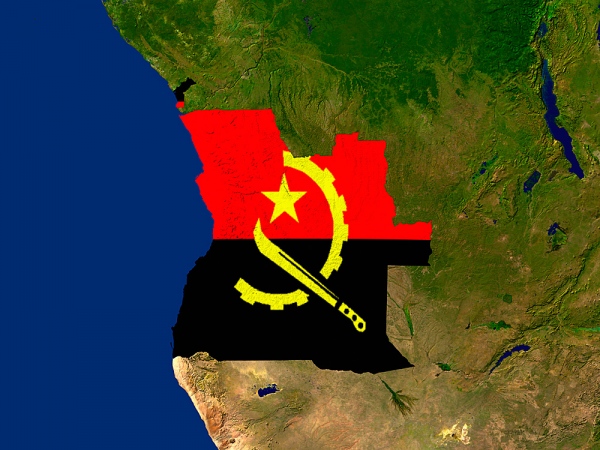Angola: Angola People Profile
2013/08/23

Angola Population
The total population in Angola was last recorded at 24.3 million people in 2014 from 5.0 million in 1960, changing 389 percent during the last 50 years. Population in Angola averaged 10.18 Million from 1960 until 2014, reaching an all time high of 24.30 Million in 2014 and a record low of 4.97 Million in 1960. Population in Angola is reported by the Instituto Nacional de Estatística, Angola.
The people of Angola represents 0.28 % of the world´s total people which arguably means that one person in each 355 people on the planet is a resident of Angola.
Migration
The completed three decades in Angola have been characterized by war, with terrible effects on the Angolan people and social structure. Although fighting stopped in 1994, at the beginning of 1997 there were still an estimated 200,000 Angolan refugees in the DROC; 96,000 Angolan refugees in Zambia; 12,000 refugees in the Republic of the Congo; 1,000 refugees in Namibia; and 15,000 Angolan refugees in 15 other nations.
As of May 1997, there were still 1.2 million Angolans displaced within their country as a result of the civil war. By June 1996, 74,000 Angolan refugees had returned to their country. However, with an upsurge in the fighting between May 1998 and June 1999, some 100,000 refugees fled the country once again. UNHCR's Angolan repatriation operation was suspended in September 1998. Despite internal conflict, Angola still hosted some 12,000 refugees, most from DROC, as of 2000. In that year, the net migration rate was -1.4 migrants per 1,000 people. The government views the migration levels as satisfactory.
Ethnic groups
The overwhelming majority of the people is Bantu, divided into a number of ethnolinguistic groupings. The major ones are the Ovimbundu, constituting some 37% of the people in 1998, the Kimbundu, totaling 25% of the people, and the Bakongo with 13%.
The mestiço (mixed European and Native African) make up about 2% of the people. Since the mestiços are generally better educated than the black people, they exercise influence in government disproportionate to their numbers. Europeans, mostly of Portuguese extraction, constitute 1% of the people; other varied groups account for the remaining 22%.
Religions
Christianity is the religion of the majority, with Roman Catholicism claiming the major numbers of the people. About 5 million people, or 38% of the people, are Roman Catholic as of 1998. About 15% of the people are of Protestant denominations; the major include Methodist, Baptist, Congregationalists (United Church of Christ), and Assemblies of God. The major syncretic religious group is the Kimbanguist Church, whose followers believe that the mid-20th century Congolese pastor Joseph Kimbangu was a prophet. Almost half the people (47%) follow African traditional beliefs either exclusively or in conjunction with other faiths. Communities in rural areas of the country practice animism and other indigenous religions. There is as well a small Islamic community.
Though a colonial-era law banning non-Christian religions still exists, it has not been generally enforced.
- Angola News
-
- ANGOLA: Angola's Elections Trigger a Crisis of Legitimacy
- ANGOLA: Congo's Sassou hails retiring dos Santos for service to Africa
- ANGOLA: Angolan opposition parties formally challenge election results in court
- ANGOLA: Submarine cable deployed in Angola to link Africa to South America
- AFGHANISTAN: UNWTO: International tourism – strongest half-year results since 2010
- BOTSWANA: Why governments need to support the financial sector to meet the unserved needs of smallholder farmers
- Trending Articles
-
- SOUTH AFRICA: Nigeria and South Africa emerge from recession
- UZBEKISTAN: Former deputy PM named Uzbekistan Airways head
- BAHRAIN: Bahrain issues new rules to encourage fintech growth
- BAHRAIN: Aluminium Bahrain’s Line 6 Expansion Achieves 25 Percent Completion
- ARUBA: Director of Tourism Turks and Caicos after Irma: Tourism, visitors, hotels current status
- AUSTRALIA: Western Australia joins two-thirds of country to ban fracking







.gif?1356023993)

